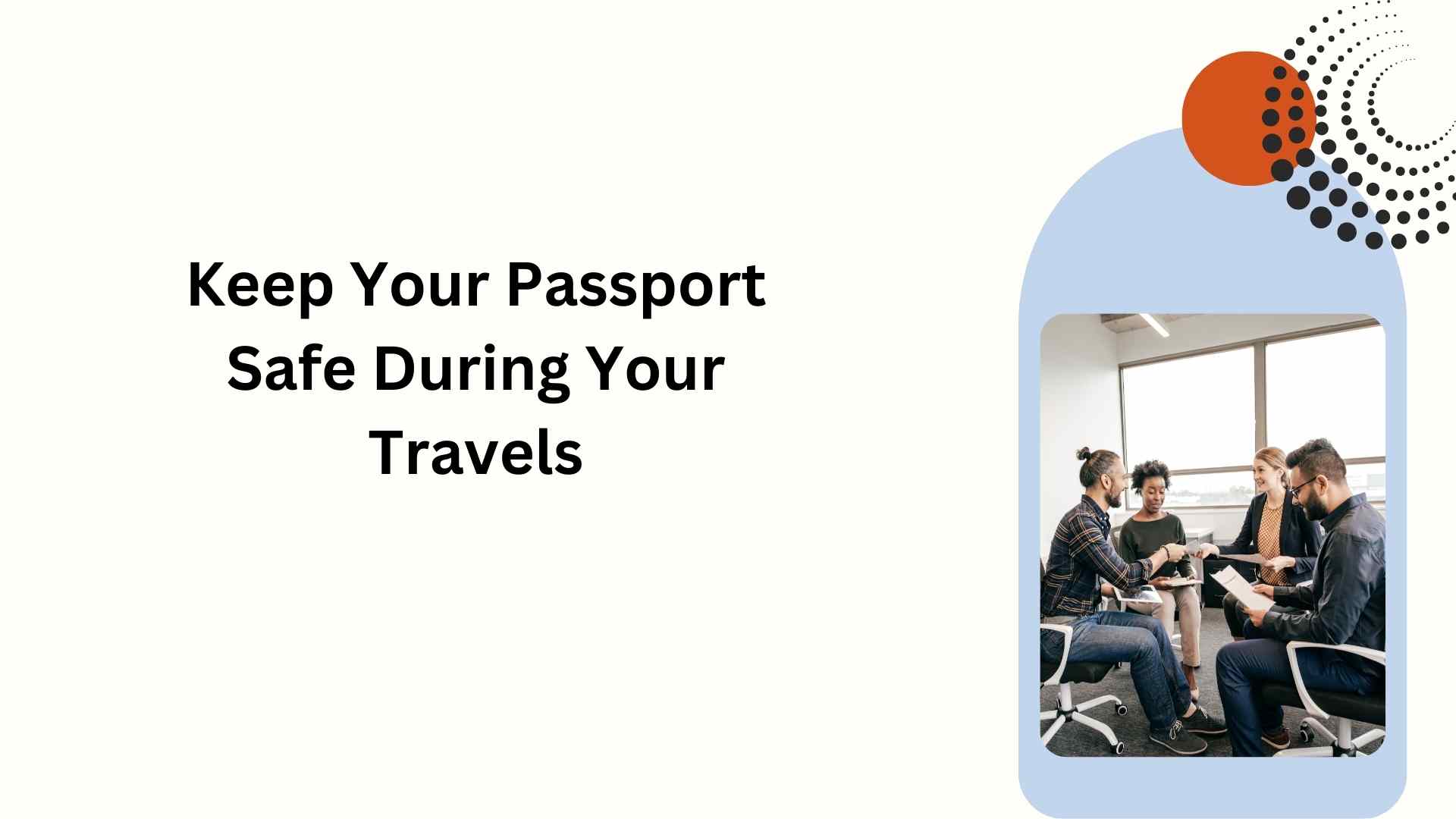Passport Registration Online generally refers to the process of applying for or renewing a passport, which is an official document issued by a government that certifies a person’s identity and nationality. This process allows citizens to travel internationally. Traveling can be one of life’s most enriching experiences, allowing you to explore new cultures, meet diverse people, and create unforgettable memories. However, along with the excitement of travel comes the responsibility of keeping your essential documents, particularly your passport, safe. A lost or stolen passport can lead to significant hassles, including missed flights, costly delays, and stressful encounters with authorities. Here’s a comprehensive guide on how to keep your passport safe during your travels.
1. The Importance of Your Passport
Your passport is not just a travel document; it represents your identity, citizenship, and rights while abroad. It allows you to enter foreign countries and return to your home country. Thus, protecting your passport is crucial to ensuring a smooth travel experience.
Why You Should Prioritize Passport Safety
- Identity Protection: A lost passport can lead to identity theft if it falls into the wrong hands.
- Travel Delays: Replacing a lost passport can take time, potentially causing you to miss flights or important events.
- Legal Complications: In some countries, carrying a passport is a legal requirement. Not having it can lead to fines or detainment.
2. Before You Leave Home
2.1. Make Copies of Your Passport
Before you embark on your journey, create both physical and digital copies of your passport. This can be invaluable if your passport gets lost or stolen.
- Physical Copies: Make several copies and keep them in different locations. For example, one copy can be in your luggage, while another can be in your hotel room.
- Digital Copies: Store a scanned copy on your phone or a secure cloud service. Ensure that your device is password-protected for added security.
2.2. Register Your Travel Plans
Many countries allow you to register your travel plans with their embassies or consulates. This can be beneficial in case of emergencies.
- Inform Your Embassy: Register your travel itinerary and emergency contact information with your home country’s embassy. This way, they can assist you more effectively if you encounter any issues.
2.3. Use a Travel Wallet
Invest in a good-quality travel wallet to keep your passport and other important documents organized and secure. Look for a travel wallet that has:
- RFID Protection: To guard against electronic theft.
- Multiple Compartments: For cash, credit cards, and tickets, keeping everything in one place.
3. During Your Travels
3.1. Know Where Your Passport Is
Always be aware of the location of your passport. Here are some strategies:
- Use a Safe: If your accommodation has a safe, store your passport there when you don’t need it. Avoid leaving it in easily accessible places.
- Carry It Smartly: When you need your passport, keep it in a secure, hidden pocket. Avoid displaying it publicly to deter pickpockets.
3.2. Limit Your Passport’s Exposure
Only carry your passport when necessary. Here are some guidelines:
- Leave It at the Hotel: If you’re going out for the day and don’t need your passport, leave it in your hotel safe.
- Use a Passport Cover: A passport cover can help protect it from wear and tear. Choose one that is also difficult for pickpockets to access.
3.3. Be Cautious in Crowded Areas
Crowded places, such as markets, public transportation, and tourist hotspots, can attract thieves. Here’s how to stay safe:
- Stay Alert: Be aware of your surroundings, especially in crowded situations. Thieves often work in teams, creating distractions to pickpocket unsuspecting travelers.
- Keep Your Bag Secure: Use bags with zippers and consider wearing them across your body. This makes it harder for someone to grab your belongings without you noticing.
4. What to Do If Your Passport Is Lost or Stolen
Despite your best efforts, there’s always a chance your passport could be lost or stolen. Knowing what to do in such a situation can minimize stress and delays.
4.1. Report It Immediately
If your passport is lost or stolen, report it to the local authorities as soon as possible. Here’s what to do:
- File a Police Report: Visit the nearest police station to file a report. This document may be required for your embassy or consulate.
- Notify Your Embassy: Contact your country’s embassy or consulate for assistance. They can guide you through the process of obtaining a replacement passport.
4.2. Gather Necessary Documents
When you visit your embassy or consulate to report a lost passport, bring the following documents:
- Identification: Any other form of ID you have (driver’s license, national ID).
- Passport Copies: If you have any copies of your passport, bring them along.
- Police Report: This is important for verifying the loss or theft.
4.3. Apply for an Emergency Passport
In many cases, you can apply for an emergency passport, which can be issued more quickly than a regular one. Be prepared to answer questions about your travel plans and provide necessary documentation.
5. Tips for Long-Term Safety
5.1. Be Prepared for Future Trips
When planning future travels, incorporate these passport safety strategies into your routine:
- Review Your Passport Expiration Date: Make sure your passport is valid for at least six months beyond your planned return date, as many countries have this requirement.
- Update Your Information: If you change your address or name, ensure that your passport reflects these changes.
5.2. Educate Yourself on Local Laws
Different countries have different laws regarding documentation:
- Know the Requirements: Familiarize yourself with local laws regarding passports. Some countries require you to carry your passport at all times.
5.3. Invest in Travel Insurance
Consider getting travel insurance that includes coverage for lost or stolen passports. This can provide peace of mind and assist with costs associated with replacing your passport.
Note: You can also Apply for Tatkal Passport Registration
Conclusion
Keeping your passport safe during travels is an essential part of enjoying a worry-free journey. By taking proactive steps before you leave home, staying vigilant while traveling, and knowing what to do in case of loss or theft, you can minimize risks and ensure that your adventures go smoothly. Remember, a little preparation can make a world of difference in safeguarding your most important travel document. With these strategies in place, you can focus on what truly matters—exploring the world and making lasting memories. Safe travels!




